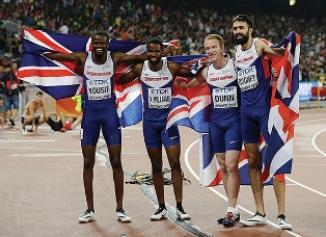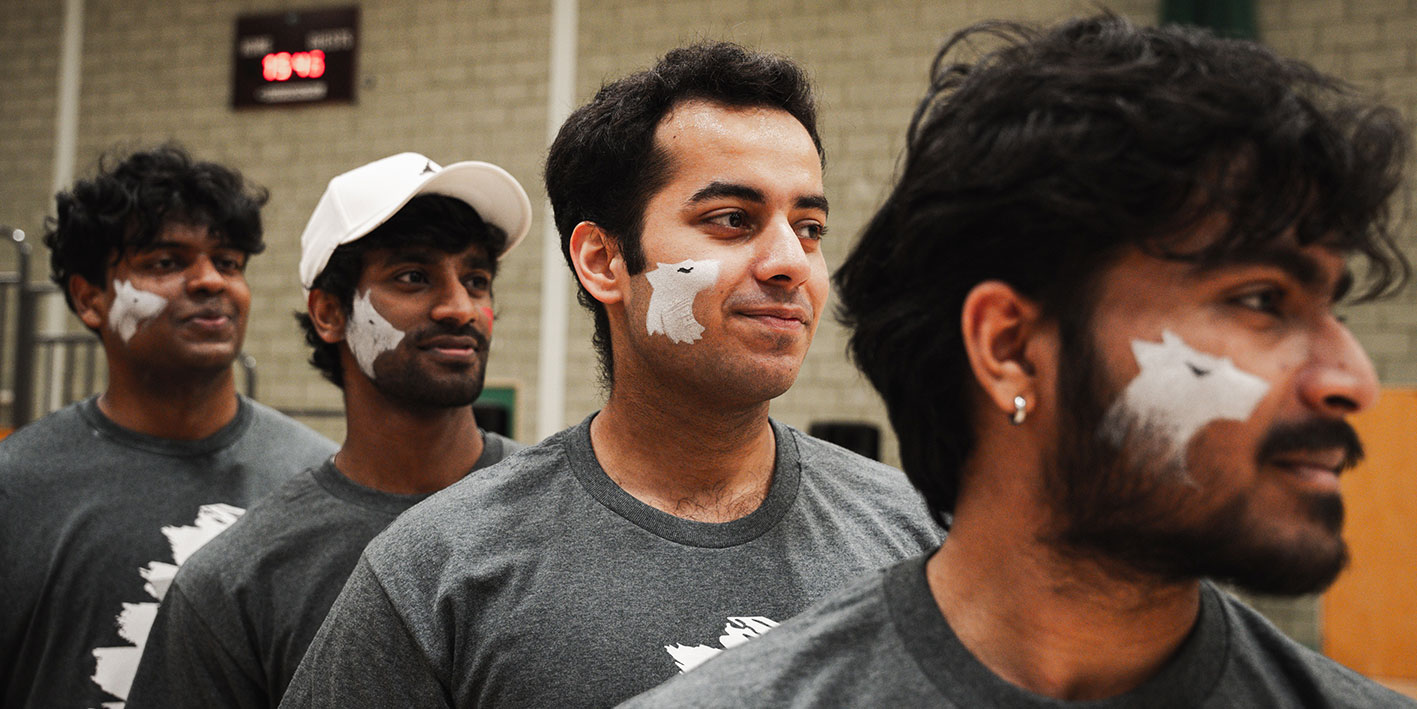
GOING FOR GOLD
Published twice a year, WLV Life is packed full of the latest University and alumni news and events, keeping you up-to-date with all the goings-on within your alumni community.
Each issue features engaging stories on different themes and we catch up with alumni old and new to find out what they have been up to since leaving the University.
http://www.wlv.ac.uk/alumni/news-and-publications/wlv-life-magazine/
We caught up again with graduate and 400m World Championship medallist Jarryd Dunn, to find out what life is like running ‘the man killer’ – and how he’s determined to survive it all the way to gold in Rio and beyond.

You’ve had an amazing season this year. What was the highlight?
“I’ve had such a busy season it’s hard to pick just one highlight! Winning a bronze medal in the 4x400m relay at the World Athletics Championships in Beijing was a huge achievement, and my two silver medals also added to my success. But I think it has to be my run in Russia last summer, as I ran a new personal best which brought me to the forefront of European 400m running, and because it was such a big stage I’m now a much more recognisable name. A year ago I didn’t make either the individual or relay team, but it’s my name that’s first on the team sheet.”
How does it feel to be a World Championship medallist?
“It’s quite surreal and it took a while to sink in – the day I arrived back in the UK I had to get an MOT for my car so it was straight back into normal life. I’m lucky to have great people around me though. My family keep me grounded and I’ve known my coach since I was 10 years old. My training group still see me as the same person and because they’ve seen all the hard work and dedication I’ve put in, they’re all really supportive and pleased for me.”
What made you choose the 400m distance?
“I don’t think anyone chooses the 400m – it chooses you! In the athletics world it’s known as the ‘man killer’ as it combines both speed and endurance, which you tend not to associate together in running. It’s basically a long distance sprint and no-one willingly opts to put their bodies through that much pain! When I started running in 2011, I was originally an 800m runner but would run a few 400m just to build up my strength. The team coaches saw me and suddenly I was being asked to join the junior team.”
So what does your training involve these days?
“A lot of grass-rep running, which is sprinting for anything from 30 seconds up to 90 seconds but with only a short recovery break in-between. Then there are circuit sessions that involve barely any recovery time and end with a 50m sprint. The aim is to build up lactic acid so that you learn to mentally overcome the pain, as well as train your body to perform through increased oxygen debt. The actual race isn’t as hard as the training, but that’s the idea – the training pushes you past where you need to be, so that when it comes to the race you know you can do it.”
It must require a great deal of self-motivation?
“Yes it does, but I always look to the end goal. In the UK this is the toughest event at the moment because of the number of competitors and if you slip up you won’t get selected for the team. That’s what mainly drives me – I want to be the first choice, not just there to make up the numbers.”
You suffered injury in 2012, how did that affect you?
“It was in 2012 that I made my breakthrough, but then it was discovered I had stress fractures in my spine so I missed the whole of 2013 and 2014 recovering and getting back into shape. It was hard, but I think the challenge actually gave me more drive, and although I technically lost two years of the sport, it also changed me mentally. I’ve grown up a lot and I think my success this season – my medals and my three consecutive personal bests – is partly down to my more mature attitude now.”
Do you have any particular strategies to ‘psych’ yourself up?
“You definitely need mental as well as physical strength in this sport, but I also get to say that my hobby is my job and when you enjoy what you do you perform better. I also never forget that athletes don’t really have a long career and they miss it when they retire at what is a comparably young age. So I’m determined to enjoy my time as much as I can because at the end of the day, that’s ultimately why I got into the sport.”
Your ambition is to represent Team GB at Rio 2016. What will be going through your head if you succeed in getting to Brazil?
“Making it to Brazil would be the realisation of a dream for me. I used to watch athletics when I was younger and the Olympics really are the pinnacle. We genuinely think the relay team can make gold this year, and the teams we’ll be competing against are the same when we won bronze at the World Championships so we know we are up there with the best. It would be an honour to come out onto home soil at the World Championships in London 2017 as reigning champions.”
Do you have a lifetime ambition in terms of your athletics?
“My lifetime ambition has naturally evolved as my career in the sport has progressed. It started off with making the team, then winning medals, but they have turned out to all be steps along the way. I have about another 10 years left in my career which means there are potentially three Olympics I can enter – three bites at the cherry.”
How do you think the increasing success of British athletics is influencing younger generations?
“The media plays a huge role and athletics doesn’t get the same coverage as the mainstream sports, but successful athletes like Jess Ennis-Hill and Greg Rutherford are raising the profile of the sport and are positive role models for young people to aspire to. Right now there are a lot of junior athletes coming through the ranks who are incredibly determined, and their abilities are already making them serious contenders to be the next generation of leading British athletes. They are fast becoming the core nucleus of athletics and they are not just there to get the t-shirt.”
How do you feel about the comparatively limited funding in athletics?
“Money draws many people into the mainstream sports but people who go into athletics know that they are never going to earn that sort of money. They do it purely for the love of the sport – true sportsmen.”
And finally...will we be seeing a Jarryd Dunn victory pose?
“The relay team likes a pose so let’s see what we can do for Rio 2016!”
For more information please contact the Corporate Communications Team.


/prod01/wlvacuk/media/departments/digital-content-and-communications/images-2024/240328-Varsity-Line-Up-Resized.jpg)
/prod01/wlvacuk/media/departments/digital-content-and-communications/images-18-19/220325-Engineers_teach_thumbail.jpg)
/prod01/wlvacuk/media/departments/digital-content-and-communications/images-2024/240423-Additive-Research-Centre-Launched.jpg)
/prod01/wlvacuk/media/departments/digital-content-and-communications/images-2024/240320-Uzbekistan-Resized.jpg)
/prod01/wlvacuk/media/departments/digital-content-and-communications/images-2024/240229-The-Link-Resized.jpg)
/prod01/wlvacuk/media/departments/digital-content-and-communications/images-2024/240416-Abi-Dare-Resized.jpg)

